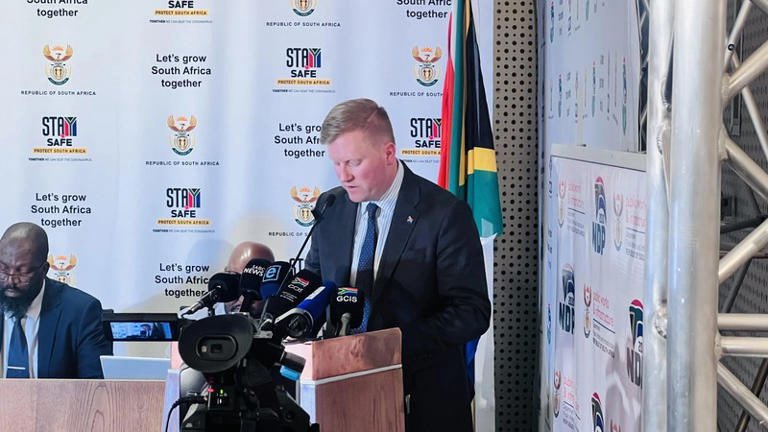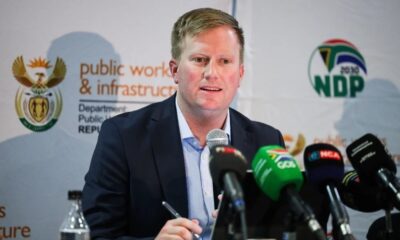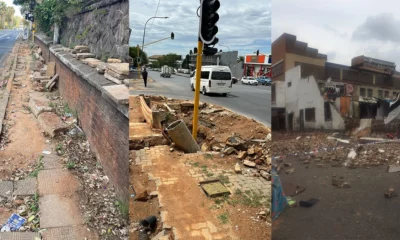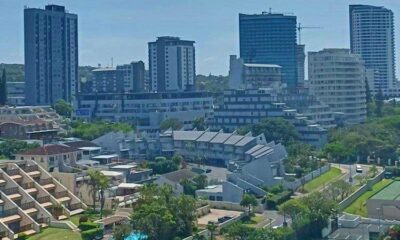News
Fraud, Fake Licences and an R800 Million Tender: The Oxygen Scandal Rocking Public Health

A forensic audit reveals how mismanagement and deceit tainted a national emergency project
In the heat of South Africa’s COVID-era health crisis, the government greenlit an ambitious project: build oxygen-generating plants across 60 hospitals to save lives. The cost was pegged at R216 million. But behind the noble intent, something far more sinister was unfolding.
Fast forward to 2025, and what should have been a proud public health milestone is now mired in scandal. A new forensic report by PricewaterhouseCoopers (PwC) lays bare the extent of fraud and mismanagement that has tainted the oxygen plant project and it reads like a masterclass in how not to handle public procurement.
Fake licence, real money
At the centre of the storm is Bulkeng (Pty) Ltd, the company that secured a lion’s share of the tender R428 million of it. On paper, it looked qualified. In reality, Bulkeng didn’t even have the necessary licence to deliver what it promised.
Instead, the company submitted a Sahpra (South African Health Products Regulatory Authority) licence stolen from a completely unrelated and unaware firm: Atlas Copco Industrial SA. That’s not a clerical error, that’s fraud. And it worked.
Minister of Public Works and Infrastructure Dean MacPherson, visibly disturbed during a press briefing in Pretoria, laid it out plainly: “This was a clear misrepresentation. In simple language, it’s called fraud.”
When budgets explode and questions disappear
The original budget for the oxygen plants was R216 million. By the time it was approved and executed, it had ballooned to R592 million. No clear explanation. No tender process restart. No alarm bells at least, none that led to action.
Even the Global Fund and the Department of Health, who had originally agreed the budget cap, signed off on the inflated costs. The final project ended up costing 174% more than originally planned.
More unqualified players in the game
Bulkeng wasn’t the only questionable player. The PwC report found that seven other companies were awarded contracts without valid Sahpra licences. This, despite those licences being a basic regulatory requirement for oxygen-producing systems in medical facilities.
It wasn’t just one oversight, it was systemic.
The role of IDT: Failed oversight or complicity?
The Independent Development Trust (IDT), tasked with managing the project, is now under heavy scrutiny. PwC named several senior figures who failed or refused, to stop the runaway train.
Dr Molebedi Sisi, general manager of supply chain management at the IDT, assured the organisation’s CEO and evaluation committees that the process was above board, even after red flags were raised by the Department of Health. He reportedly argued against cancelling the bidding process and pushed ahead with flawed documentation.
CEO Tebogo Malaka is also implicated for failing to do basic verification of critical documents. She allegedly approved contracts based entirely on internal staff assurances, without personally ensuring compliance with legal and financial protocols.
How we got here: A media exposé sparks a deeper probe
The PwC investigation, launched in January this year, was not proactive. It followed a hard-hitting Daily Maverick exposé published three months earlier. Only after public pressure mounted did the Department of Public Works commission an external investigation.
PwC’s team interviewed over 40 stakeholders and reviewed more than 90 procurement and financial records over six months. Their conclusion: disciplinary action is not just warranted, it’s urgent.
Public outrage and political pressure mount
Since the scandal broke, reaction has been swift, particularly on social media, where many South Africans voiced outrage over yet another example of corruption in essential services.
“We were fighting for breath, and they were fighting over tenders,” one user posted on X (formerly Twitter). Others are calling for criminal prosecution, not just disciplinary hearings.
There’s also growing frustration with what some see as a culture of impunity in government-linked entities. “If heads don’t roll this time, we’ve officially normalised theft,” a prominent activist wrote.
Beyond the oxygen plants: The deeper cost
While the financial loss is staggering, the real tragedy is the human one. These oxygen plants were supposed to provide life-saving support to hospitals serving the country’s most vulnerable. Delays, subpar work, or outright fraud didn’t just cost money, they may have cost lives.
This scandal is not only about public finances. It is about trust. Trust in systems meant to protect, not exploit. Trust in leaders meant to serve, not profit. And trust in promises made under the shadow of a pandemic.
What happens next?
Minister MacPherson has vowed accountability. He says disciplinary action is on the table and further legal consequences are being explored. But the public has heard that before.
Until those responsible are held visibly and decisively accountable, including potential prosecution, many South Africans will see this as just another chapter in a long saga of corruption.
And that’s the real oxygen crisis: not the shortage in hospitals, but the suffocation of hope
{Source: IOL}
Follow Joburg ETC on Facebook, Twitter , TikTok and Instagram
For more News in Johannesburg, visit joburgetc.com



























